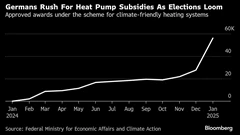MOL Group unveils new low carbon and new energies branch in Croatia
MOL Group, a leading player in the energy sector in Central and Eastern Europe, has unveiled its latest endeavour in sustainable energy solutions with the creation of the "Low Carbon and New Energies" branch within its Exploration and Production division in Zagreb, Croatia.
With a dedicated focus on reducing carbon footprint and pioneering renewable energy initiatives, the Low Carbon and New Energies branch will address sustainability-related challenges and launch new business streams. The organisation will spearhead multiple initiatives aimed at diversifying MOL Group’s energy portfolio, targeting the reduction of CO2 and methane emissions and minimising environmental impact.
Commenting on the launch of the Low Carbon and New Energies branch, Zsombor Marton, Executive Vice President of MOL Group Exploration and Production, stated: "We recognise the need for sustainable energy solutions to address the challenges of our times. We will build on our century-long knowledge and subsurface expertise in the new and non-traditional business lines, in order to contribute to MOL Group’s decarbonisation efforts laid down in the recently updated ‘Shape Tomorrow strategy’. The establishment of the Low Carbon and New Energies organisation underscores our commitment to environmental responsibility. We are excited to embark on this journey towards a more sustainable future."
Among the key projects under the Low Carbon and New Energies branch is geothermal energy production. Leveraging advanced technology and expertise, MOL Group’s Exploration and Production will harness the Earth's natural heat to generate clean and renewable energy. This initiative underscores MOL Group’s dedication to sustainable energy solutions. In recent months, two geothermal exploration licences were awarded to MOL in Hungary, and two to INA in Croatia.
Another significant project is the lithium production pilot project. Recognising the growing importance of lithium in the transition to electric mobility, MOL Group is embarking on a pilot project to explore sustainable methods of lithium extraction in Pusztaföldvár, Hungary. Testing of several R&D technologies will start this year. MOL will be testing an environmentally friendly solution using the underground water already being mined for oil production. After the extraction of lithium, the water will be re-injected in a circular way.
In addition, MOL Group is committed to mitigating greenhouse gas emissions through the implementation of Carbon Capture and Storage (CCS) technologies. By storing carbon dioxide underground, MOL aims to significantly reduce its environmental footprint. Currently, feasibility studies for several locations across Hungary and Croatia are being launched. Furthermore, discussions have started with potential partners across the entire CCS ecosystem.
Lastly, as part of its commitment to environmental stewardship, MOL Group is implementing measures to minimise methane emissions across its operations, to fully comply with upcoming EU regulations. Through advanced monitoring and control systems, the company seeks to enhance operational efficiency while reducing environmental impact.
KEEPING THE ENERGY INDUSTRY CONNECTED
Subscribe to our newsletter and get the best of Energy Connects directly to your inbox each week.
By subscribing, you agree to the processing of your personal data by dmg events as described in the Privacy Policy.
More renewables news

Germany’s Merz Takes Aim at Greens in Final Election Stretch
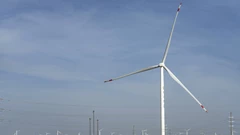
GB Energy Faces Doubts as UK Declines to Affirm Future Funds
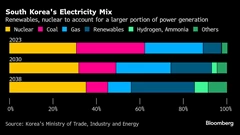
Korea Cancels Planned Reactor After Impeaching Pro-Nuke Leader
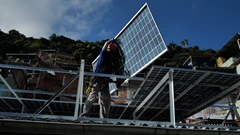
Brazil’s Net-Zero Transition Will Cost $6 Trillion by 2050, BNEF Says

SolarEdge Climbs 40% as Revenue Beat Prompts Short Covering
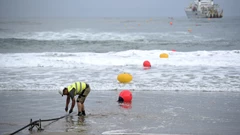
EU to Set Aside Funds to Protect Undersea Cables from Sabotage
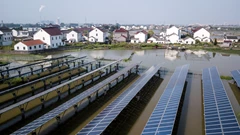
China Revamps Power Market Rules In Challenge to Renewables Boom

KKR increases stake in Enilive with additional €587.5 million investment
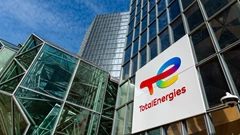
TotalEnergies and Air Liquide partner to develop green hydrogen projects in the Netherlands
